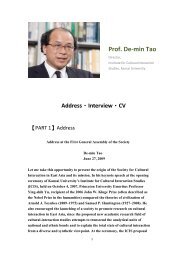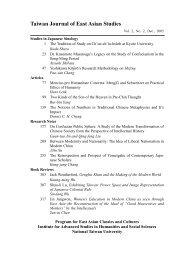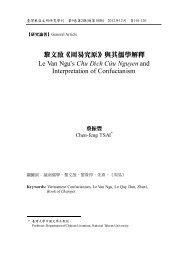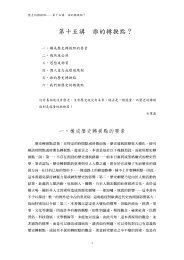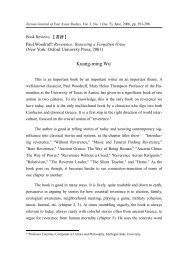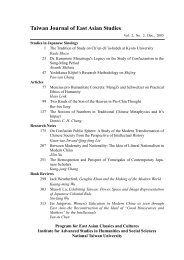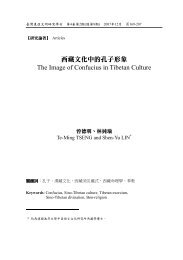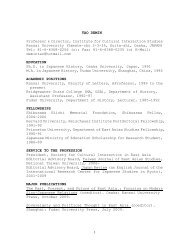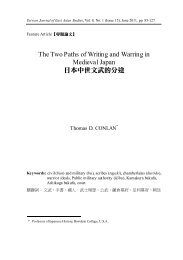臺灣東亞文明研究學刊 - 東亞經典與文化研究計畫 - 國立臺灣大學
臺灣東亞文明研究學刊 - 東亞經典與文化研究計畫 - 國立臺灣大學
臺灣東亞文明研究學刊 - 東亞經典與文化研究計畫 - 國立臺灣大學
You also want an ePaper? Increase the reach of your titles
YUMPU automatically turns print PDFs into web optimized ePapers that Google loves.
Nicholas T. PHILLIPSON Theorising the Problems of Small Nations in the Enlightenment 235<br />
formidable power of the Court, the painfully undeveloped state of the country's<br />
agriculture and manufactures, and the volatility of the developing west coast trade<br />
with England, Ireland and America. At the same time, it became clear that<br />
influential members of the church, the professions and the landed classes were<br />
seriously interested in the reconstructing the country's civil and ecclesiastical and<br />
cultural institutions in the Fletcherian belief that this would help Scotland to retain<br />
its civil society and foster its liberties and prosperiety within the framework of an<br />
incorporating, parliamentary union.<br />
Hume's distinctive views of Europe need to be seen as part of a sophisticated<br />
critical response to a shifting public culture and to a desire to define Scotland's<br />
position in the new British state. Philosophically his thinking about Europe had its<br />
roots in his understanding of the principles of human nature and was set out in a<br />
series of essays on the public culture of modern Britain published between 1741 and<br />
1752 and in a remarkable and somewhat neglected six-volume History of England,<br />
published between 1754-1762. He developed the highly sceptical view that all<br />
knowledge was encapsulated in beliefs which were embedded in language and<br />
acquired in the course of common life as the result of our exposure to the<br />
sentiments of others. It was a line of thought that allowed him to develop an<br />
essentially anthropological view of the mind as a product of the circumstances in<br />
which it was formed, a view which emphasised the importance of property,<br />
prejudice and superstition in shaping an individual's mind and a society's culture. It<br />
was thinking which made it possible for him to think of national histories as part of<br />
the history of civilisation and, like Fletcher, his thinking about his own country's<br />
history was notable for being set in the context of the history of European<br />
civilisation, and the profound changes which had taken place since the decline of<br />
feudalism and the rise of commerce. It was this European sensibility that was to<br />
xi



